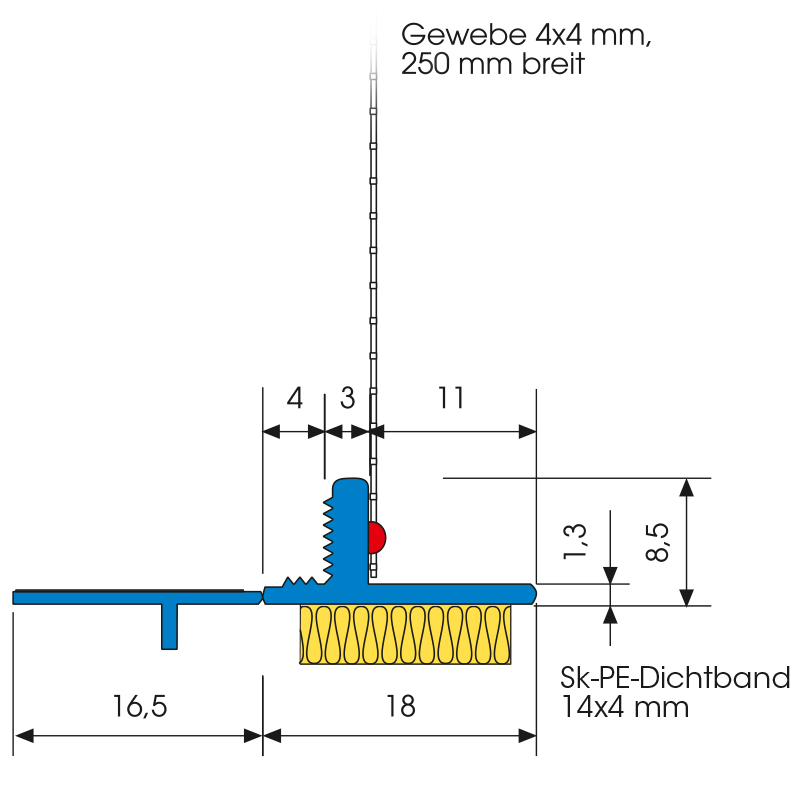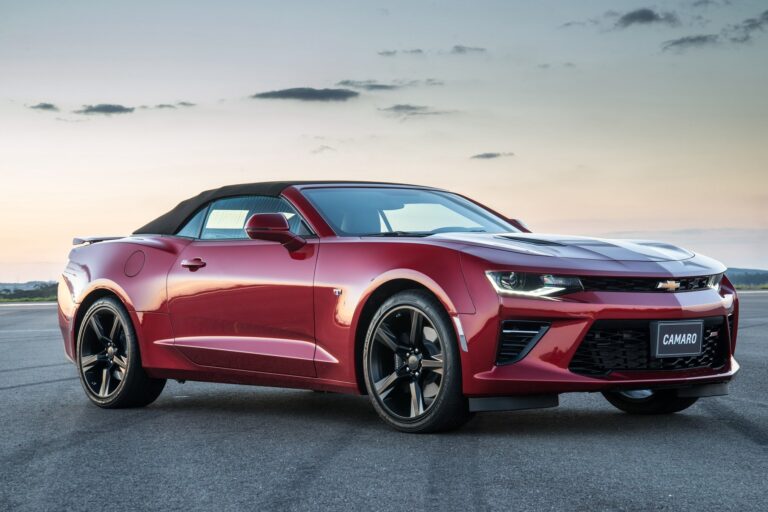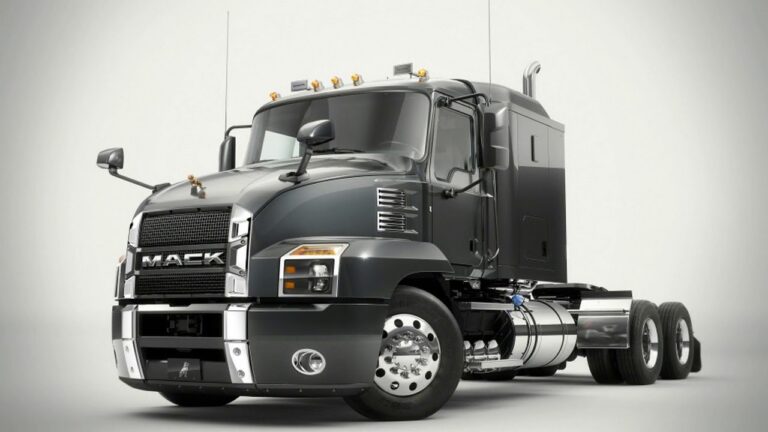APU Units For Semi Trucks For Sale: A Comprehensive Guide to Smart Power Solutions
APU Units For Semi Trucks For Sale: A Comprehensive Guide to Smart Power Solutions cars.truckstrend.com
In the demanding world of long-haul trucking, every mile, every minute, and every drop of fuel counts. Truck drivers spend countless hours on the road, often requiring extended rest periods in their cabs. Traditionally, this meant idling the main truck engine to power essential amenities like air conditioning, heating, and electronics. This practice, however, comes with a hefty price tag: excessive fuel consumption, increased engine wear, higher emissions, and non-compliance with growing anti-idling regulations.
Enter the Auxiliary Power Unit (APU). An APU is a compact, self-contained system designed to provide power to a semi-truck’s cab without running the main engine. For truck owners and operators looking to enhance comfort, reduce operational costs, and promote environmental responsibility, investing in an APU unit is no longer a luxury but a strategic necessity. This comprehensive guide will delve into everything you need to know about APU units for semi trucks for sale, helping you make an informed decision that drives efficiency and comfort.
APU Units For Semi Trucks For Sale: A Comprehensive Guide to Smart Power Solutions
Understanding APU Units: More Than Just a Generator
At its core, an APU is a miniature power plant specifically engineered for the unique demands of a semi-truck. Unlike simply plugging in a portable generator, APUs are integrated systems that seamlessly provide consistent power for climate control (heating and air conditioning), interior lights, charging devices, and running small appliances like microwaves or refrigerators. They typically mount on the truck’s frame rail, taking up minimal space while delivering maximum utility.
The primary function of an APU is to eliminate the need for engine idling during rest stops, loading/unloading, or layovers. This directly translates to significant savings and benefits, which we will explore in detail.
The Unbeatable Benefits of Investing in an APU
The advantages of equipping your semi-truck with an APU are multi-faceted, impacting your bottom line, your environmental footprint, and most importantly, driver well-being.
- Drastic Fuel Savings: This is arguably the most compelling benefit. A semi-truck engine consumes approximately 0.8 to 1.5 gallons of fuel per hour when idling. An APU, depending on its type, uses significantly less – typically between 0.1 to 0.3 gallons per hour for diesel models, and zero fuel for electric units when running on battery. Over thousands of hours of idling annually, these savings accumulate rapidly, often leading to a quick return on investment (ROI).
- Extended Engine Life and Reduced Maintenance: Idling is detrimental to a truck’s main engine. It causes excessive wear and tear on components, fouls spark plugs (in gasoline engines, though less common in diesels), and leads to carbon buildup. By reducing idling hours, an APU extends the lifespan of your main engine, delays costly overhauls, and decreases routine maintenance needs like oil changes.
- Enhanced Driver Comfort and Productivity: A comfortable driver is a safe and productive driver. APUs ensure consistent heating and air conditioning regardless of external temperatures, allowing drivers to get quality rest. They also power in-cab amenities, making the truck feel more like a home away from home, which can significantly improve driver morale and retention.
- Compliance with Anti-Idling Laws: An increasing number of states, municipalities, and even private facilities have strict anti-idling laws to reduce air pollution and noise. Violations can result in hefty fines. APUs provide a legal and efficient alternative, ensuring compliance and peace of mind.
- Reduced Emissions and Environmental Impact: By consuming less fuel and operating more efficiently than a large diesel engine at idle, APUs significantly reduce greenhouse gas emissions and particulate matter, contributing to cleaner air and a healthier planet.
- Increased Resale Value: A truck equipped with a well-maintained APU unit is often more attractive to potential buyers in the used truck market, adding to its overall resale value.


Key Considerations When Buying an APU Unit
Navigating the market for APU units requires careful consideration of various factors to ensure you select the best fit for your specific needs and budget.
-
Type of APU:

- Diesel-Powered APUs: These are the most common type. They run on the same diesel fuel as the truck, offering robust power output for both heating and cooling, and can operate for extended periods. They are reliable and generally have a good power-to-fuel consumption ratio.
- Battery-Powered (Electric) APUs: These units rely on a dedicated battery bank, which is charged by the truck’s alternator while driving, or via shore power when available. They are exceptionally quiet, produce zero emissions during operation, and require less maintenance. However, their run time for HVAC is limited by battery capacity, typically 8-12 hours, before needing a recharge. They are ideal for drivers with shorter rest periods or access to shore power.
- Hydraulic APUs: Less common for cab comfort, these units utilize the truck’s hydraulic system to power components like air conditioning compressors. They are integrated and efficient but may not offer the comprehensive power solutions (e.g., 110V outlets) of other types.
-
Power Output and Capacity: Consider what you need to power. Do you just need basic HVAC, or do you run a microwave, coffee maker, and other electronics? Ensure the APU’s BTU (for heating/cooling) and wattage output can handle your anticipated load.
-
Installation Requirements: APUs need to be professionally installed to ensure proper integration with the truck’s electrical and fuel systems, as well as secure mounting. Factor in installation costs when budgeting. Some units are more compact and easier to install than others.
-
Noise Levels: For driver comfort and compliance with noise ordinances, check the decibel (dB) rating of the APU. Electric units are virtually silent, while diesel units have varying noise levels.
-
Maintenance Requirements: Diesel APUs require routine maintenance similar to a small engine (oil changes, filter replacements). Electric units have fewer moving parts and thus lower maintenance needs, primarily focusing on battery health.
-
Warranty and Support: A robust warranty and readily available parts/service network are crucial. Look for manufacturers with a good reputation for customer support.
-
Budget: New vs. Used:
- New APUs: Offer the latest technology, full warranties, and no prior wear and tear. They come with a higher upfront cost.
- Used APUs: Can be significantly more affordable, making the ROI faster. However, they come with risks: unknown maintenance history, potential hidden issues, and limited or no warranty. Careful inspection and potentially a professional assessment are vital.
Navigating the Market: Where to Find APU Units For Sale
The market for APU units is diverse, offering options for every budget and preference.
- Authorized Dealers (New): For brand-new units, your best bet is to go through authorized dealers of major APU manufacturers like Thermo King, Carrier ComfortPro, RigMaster Power, Webasto, Dometic, and Bergstrom. These dealers can provide expert advice, professional installation, and warranty support.
- Truck Dealerships: Many new and used truck dealerships offer APU installation services and may have units for sale, sometimes bundled with truck purchases.
- Online Marketplaces: Websites like eBay, Craigslist, and specialized trucking forums often list used APUs. Exercise extreme caution here; always inspect the unit in person if possible and verify the seller’s credibility.
- Auction Houses: Truck and equipment auctions can be a source for used APUs, sometimes at competitive prices. This route carries higher risk as units are often sold "as-is."
- Specialized Trucking Equipment Suppliers: Companies that specialize in aftermarket truck accessories and equipment often carry a range of APU units and can provide installation.
Tips for a Smart APU Purchase
- Calculate Your ROI: Before buying, estimate your current idling hours and fuel consumption. Compare this to the APU’s fuel usage and cost. Factor in the purchase price, installation, and ongoing maintenance. A typical ROI period for a new APU can be 12-24 months for high-usage trucks.
- Read Reviews and Get Recommendations: Talk to other truck drivers or fleet managers who use APUs. Their real-world experiences can provide invaluable insights into specific brands and models.
- Thoroughly Inspect Used Units: If considering a used APU, ask for maintenance records, check the hour meter, inspect for leaks, rust, or damage, and if possible, see it run. A pre-purchase inspection by a qualified mechanic is highly recommended.
- Get Multiple Quotes: Don’t settle for the first offer. Shop around from different dealers or suppliers to compare prices for both the unit and installation.
- Consider Total Cost of Ownership (TCO): Beyond the purchase price, factor in maintenance, potential repairs, and fuel costs over the lifespan of the unit.
- Verify Compatibility: Ensure the APU unit you choose is compatible with your truck model, available space on the frame rail, and electrical system.
Installation and Maintenance: Ensuring Longevity
Proper installation is paramount for an APU’s performance and longevity. It involves integrating the unit with the truck’s fuel, electrical, and HVAC systems. While some mechanically inclined individuals might consider DIY, professional installation is strongly recommended to ensure safety, efficiency, and to maintain the unit’s warranty.
Basic Maintenance Tips:
- Diesel APUs: Adhere to the manufacturer’s recommended service intervals for oil changes, fuel filter replacements, and air filter cleaning/replacement. Regularly check coolant levels and belts.
- Electric APUs: Focus on battery health. Ensure batteries are properly charged and maintained, especially in extreme temperatures. Check battery terminals for corrosion.
- General: Keep the APU unit clean, free of debris, and check for any unusual noises or leaks.
Challenges and Solutions
- Initial Cost: The upfront investment for an APU can be substantial.
- Solution: Focus on the long-term ROI. Many dealers offer financing options. Government incentives or grants for clean idle technologies might also be available in certain regions.
- Maintenance: Diesel APUs require regular attention.
- Solution: Factor maintenance costs into your budget. Adhere to the service schedule. Consider an electric APU if lower maintenance is a priority and run time limitations are acceptable.
- Space and Weight: APUs add weight and occupy frame rail space.
- Solution: Choose compact models if space is limited. The fuel savings and reduced engine wear typically outweigh the minor weight addition for most operations.
APU Units For Semi Trucks For Sale: Estimated Price Guide
Please note: Prices are estimates and can vary significantly based on brand, features, new vs. used condition, dealer, location, and installation costs. Installation can add an additional $1,500 – $3,000+ to the total cost.
| APU Type/Brand (Example) | Power Output (BTU/kW) | Fuel Type | Key Features | Avg. New Price Range (USD) | Avg. Used Price Range (USD) |
|---|---|---|---|---|---|
| Diesel APUs | |||||
| Thermo King TriPac Evo | 20,000 BTU AC, 6.5 kW | Diesel | AC, Heat, 110V, Battery Chg, Auto Start/Stop, Shore Power Option | $9,000 – $14,000 | $4,000 – $8,000 |
| Carrier ComfortPro | 24,000 BTU AC, 8 kW | Diesel | AC, Heat, Shore Power, 110V outlets, Advanced Control Panel | $9,500 – $15,000 | $4,500 – $8,500 |
| RigMaster Power | 10,000 BTU AC, 5 kW | Diesel | Compact, AC, Heat, 12V/110V, Lower Fuel Consumption | $8,000 – $12,000 | $3,500 – $7,000 |
| Webasto SmarTemp APU | 20,000 BTU AC, 5 kW | Diesel | Integrated HVAC, Smart Control, Remote Start | $8,500 – $13,500 | $3,800 – $7,500 |
| Electric/Battery APUs | |||||
| Dometic/TruckGen (Elect.) | 7,000-10,000 BTU AC | Battery | Pure Electric, Quiet, Zero Emissions, Limited Run Time (8-12 hrs) | $4,000 – $8,000 | $2,000 – $5,000 |
| Bergstrom NITE APU | 6,000-10,000 BTU AC | Battery | Integrated HVAC, Shore Power Capable, No Fuel Consumption | $4,500 – $9,000 | $2,500 – $5,500 |
| IdleAir (Subscription) | N/A | N/A | Service-based, not a unit for sale. Provides shore power, HVAC, Wi-Fi. | Monthly Fee/Per Use | N/A |
Note: Used prices depend heavily on age, condition, hours of operation, and maintenance history.
Frequently Asked Questions (FAQ)
Q: What is an APU and why do I need one?
A: An Auxiliary Power Unit (APU) provides power for your truck’s cab (HVAC, electronics) without running the main engine. You need one to save fuel, reduce engine wear, comply with anti-idling laws, and significantly improve driver comfort.
Q: How much fuel can an APU save?
A: An APU can save hundreds, even thousands, of gallons of fuel annually. While a truck idles at 0.8-1.5 gallons/hour, a diesel APU typically uses 0.1-0.3 gallons/hour, and electric APUs use no fuel while operating.
Q: What’s the main difference between diesel and electric APUs?
A: Diesel APUs run on the truck’s fuel, offer robust, continuous power, and are good for extended periods. Electric APUs run on batteries, are quiet, zero-emission during operation, and have limited run times (typically 8-12 hours) before needing a recharge.
Q: How long do APUs last?
A: With proper maintenance, a quality APU unit can last 10,000 to 15,000 operating hours, or even longer, which translates to many years of service.
Q: Are APUs legal everywhere?
A: Yes, APUs are generally legal everywhere as they are designed to comply with anti-idling laws by providing an alternative to main engine idling. They help you avoid fines in regions with strict regulations.
Q: Can I install an APU myself?
A: While possible for very experienced mechanics, professional installation is highly recommended. It ensures proper integration with the truck’s complex systems, safety, and preserves the unit’s warranty.
Q: What maintenance does an APU require?
A: Diesel APUs require regular oil changes, filter replacements (fuel, air, oil), and general inspections. Electric APUs require less maintenance, primarily focusing on battery health and charging system integrity.
Q: Is buying a used APU a good idea?
A: It can be a cost-effective option, but it comes with risks. Thoroughly inspect the unit, check maintenance records, and ideally, have it inspected by a professional mechanic to avoid hidden issues.
Q: How do I choose the right APU for my truck?
A: Consider your typical idle time, power needs (HVAC, electronics), budget, desired run time, and preference for diesel or electric. Research reputable brands, read reviews, and get advice from trusted sources or dealers.
Conclusion
For today’s semi-truck operations, an Auxiliary Power Unit is an investment that pays dividends in fuel savings, reduced maintenance, environmental responsibility, and, most importantly, enhanced driver comfort and retention. Whether you opt for a new, state-of-the-art diesel unit or a quiet, efficient electric model, understanding the benefits, key considerations, and market dynamics will empower you to make a smart purchase. By choosing the right APU unit for your semi-truck, you’re not just buying a piece of equipment; you’re investing in a more efficient, comfortable, and sustainable future on the road.





